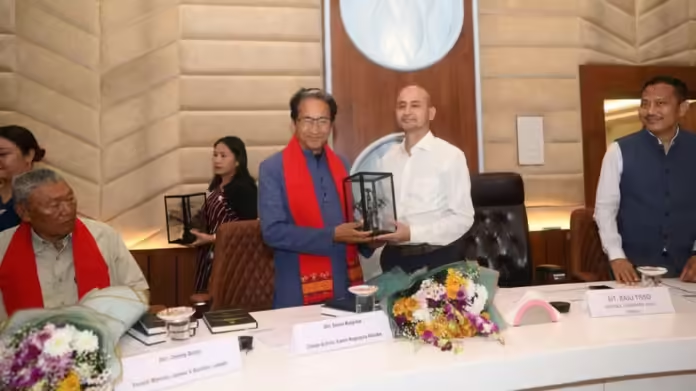Sonam Wangchuk, the renowned climate activist and engineer, is set to visit Assam to address the pressing issues surrounding the Sixth Schedule of the Indian Constitution. His visit to Diphu, a town in the Karbi Anglong district, will center on promoting sustainable tribal development while tackling the unique challenges that the region faces under the Sixth Schedule.
The Sixth Schedule grants autonomy to certain tribal areas in India, including parts of Assam, Meghalaya, Tripura, and Mizoram. It aims to protect the distinct culture, tradition, and land rights of the indigenous tribes in these areas. However, the implementation of this provision has often been a subject of debate. While the Sixth Schedule ensures administrative autonomy, there have been concerns over the lack of adequate development and the exploitation of tribal resources by external entities. Wangchuk’s visit to Assam comes at a crucial time when tribal communities are seeking more effective solutions for sustainable growth and better governance.
Wangchuk, known for his role in inspiring climate action and environmental conservation, brings a unique perspective to the issue. His focus on sustainable development for indigenous communities aligns with his broader advocacy for environmentally conscious solutions that blend tradition with innovation. Wangchuk’s efforts aim to encourage practices that respect the ecological balance while ensuring that local communities have the means to thrive economically.
His trip to Diphu marks an important opportunity to bring national attention to the struggles faced by tribal communities under the Sixth Schedule. The region, rich in natural resources, has long been home to several tribal communities that maintain a deep connection with their land and traditions. However, rapid industrialization and external influences have led to significant challenges, such as land alienation, environmental degradation, and cultural erosion. Wangchuk’s initiative seeks to address these issues by focusing on sustainable development models that can empower the tribal population without compromising their way of life.
One of Wangchuk’s primary goals is to foster dialogue between government authorities, tribal leaders, and activists to ensure that the benefits of autonomy under the Sixth Schedule are fully realized. He believes that the key to overcoming the challenges lies in implementing a holistic approach to tribal development, one that incorporates environmental conservation, economic empowerment, and cultural preservation. Wangchuk advocates for projects that will help local communities gain access to education, healthcare, and infrastructure while preserving their unique cultural identities.
Additionally, Wangchuk is likely to highlight the importance of integrating renewable energy sources, such as solar and wind power, into tribal development projects. Given the region’s natural beauty and abundant sunlight, he believes that Assam’s tribal areas can lead the way in sustainable energy production. By encouraging the use of green technology and reducing dependence on fossil fuels, Wangchuk envisions a future where tribal communities benefit from modern advancements while staying true to their traditional practices.
His visit is also expected to provide a platform for raising awareness about the environmental challenges faced by the region, such as deforestation, soil erosion, and the loss of biodiversity. Wangchuk has long been a champion of conservation efforts, and his work in Ladakh has earned him global recognition. He aims to bring similar initiatives to Assam, helping local communities find ways to protect their natural resources while achieving economic growth.
Furthermore, Wangchuk’s leadership and reputation as an innovator can inspire younger generations in Assam to pursue careers in environmental science, sustainable agriculture, and renewable energy. By instilling a sense of responsibility towards their land and environment, he hopes to create a more sustainable future for tribal communities.
As he engages with local communities in Diphu, Wangchuk’s approach will likely include workshops, discussions, and interactions that focus on the importance of preserving tribal heritage while addressing contemporary challenges. His vision for Assam’s tribal areas is one of empowerment, sustainability, and cultural pride, ensuring that these communities can thrive without sacrificing their traditions or the environment.
Sonam Wangchuk’s visit to Assam represents a significant step in the conversation about tribal autonomy and sustainable development in the region. His leadership and advocacy for a balanced, respectful approach to progress offer hope for a future where tribal communities can flourish, both culturally and economically, under the protection of the Sixth Schedule. Through this engagement, Wangchuk aims to pave the way for a more inclusive, environmentally-conscious path forward for Assam’s indigenous populations.




